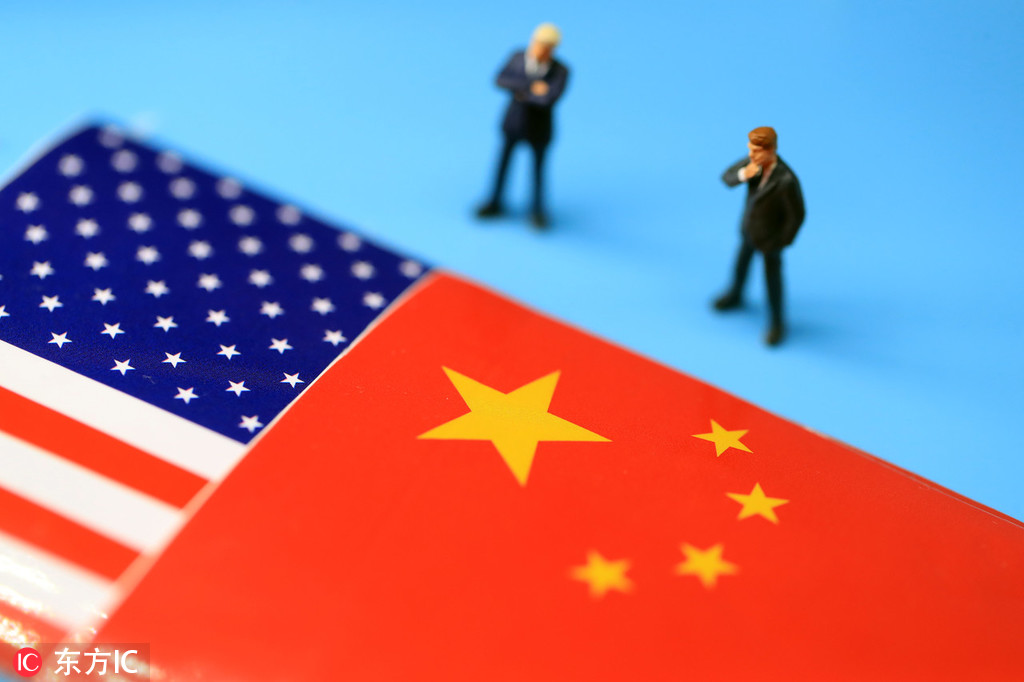Washington foolish to defy economics law

The root cause for the repeated twists and turns in the China-US trade talks lies, to a great extent, in the United States' serious deviation from, and disdain for, the objective laws of economics. The fact that China will never accept its unreasonable demands further complicates the matters for the US.
The US administration's often competing and clashing objectives-though many of them are understandable-cannot be realized simultaneously. For instance, the US hopes to revive its industries and boost its real economy while maintaining the huge bubble in its financial market.
A dream called sustainable reindustrialization
Yet the US expends huge amounts of its resources just to maintain its monetary hegemony and thus ensure its financial sector offers higher pay and return on investment compared with the real economy sectors, which helps it to maintain its advantage in attracting talents and capital. This in turn prompts the authorities to introduce more favorable policies and regulations for the enterprises based in the US, which is essentially a combination of representative democracy and market economy. Under such circumstances, how can the US promote sustainable reindustrialization?
Besides, reindustrialization is not possible without rebuilding or strengthening infrastructure facilities. And although the US leader has been claiming to implement a trillion-dollar infrastructure plan-and even made it one of the pillars of his "Make America Great Again" campaign-not much has come of it.
Another major problem is that the return on equity in the infrastructure sector is a mere 3 percent while that in the US capital market is about 12 percent. So how can the US attract more private capital to the infrastructure sector without guaranteeing a return on equity equal to that in the capital market?
US suffering from a financial Dutch disease
The US' monetary hegemony is itself a big impediment to the reindustrialization process, which could be viewed as a sort of financial Dutch disease-the apparent causal relationship between the increase in the economic development of a specific sector and a decline in other sectors. The more heated the US stock market gets, the more serious the Dutch disease will become. And, ironically, the US leader is keen on strengthening the stock market to showcase his political and economic track record.
Besides, the US administration cannot launch large-scale infrastructure construction projects, significantly reduce the trade deficit with China and deny Chinese investors access to its market all at the same time.
The US' trade deficit stems from its extremely low national savings rate and has to be compensated by other countries' national savings, which in turn adds to the trade deficit. On the other hand, China's efficiency in the manufacturing industry makes it a large exporter of manufactured goods to the US and helps it sustain its high savings rate.
A high growth rate means higher trade deficit for US
Given that the US economy is driven by domestic demand, consumption in particular, instead of exports, a high rate of economic growth will widen the trade deficit, as it would have to import more products than it exports. In such a situation, the implementation of large-scale infrastructure construction projects would further increase the trade deficit.
To make up for the increasing savings gap, the US needs to introduce and use more foreign capital, which will further enlarge the trade deficit. Therefore, the US cannot simultaneously maintain a high growth rate, invest massively in infrastructure, reduce the trade deficit and restrict the inflow of foreign capital.
What is really questionable is that, despite its contempt for over-regulation of the economy, the US administration has been trying to impose regulations on international trade, even for its trade partners' domestic economic management.
Results for US may be unsatisfactory
The US administration's more often than not conflicting goals have resulted in the trade conflicts with China and other countries. For instance, China's exports to the US grew 11.3 percent and its trade surplus with the US increased to $323 billion in 2018, up 17.3 percent year-on-year.
Moreover, Washington has forbidden US companies to sell chips to ZTE, a Chinese multinational telecommunications equipment and systems company, even after imposing huge fines on the company. By so doing, the US has actually encouraged China to increase investment in its high-tech sector. So, even if China and the US were to strike a deal, China would be prompted to import lower volumes of energy and agricultural products from the US.
In macroeconomic terms, the China-US trade dispute has added huge uncertainties to the US economy and raised the likelihood of recession. Which could thwart the US president's chances of being re-elected in 2020. And the trade dispute could prevent the US from taking the measures it intends to in order to consolidate its national power.
As for China, the significant deviation in the US' stances and objectives in the trade talks should be a warning for it to more strictly stick to its principles. And the fact that the US wants to challenge the laws of economics should not be reason for China to try to do the same.
The author is a researcher at the International Trade and Economic Cooperation Institute of the Ministry of Commerce. The views do not necessarily represent those of China Daily.
This article is reprinted from China Daily.